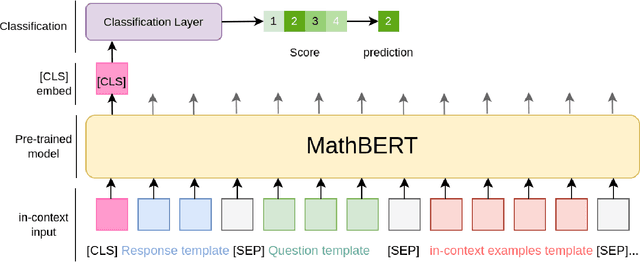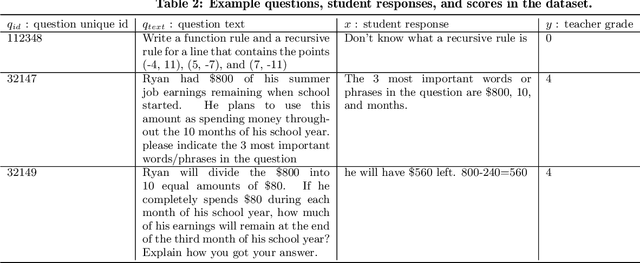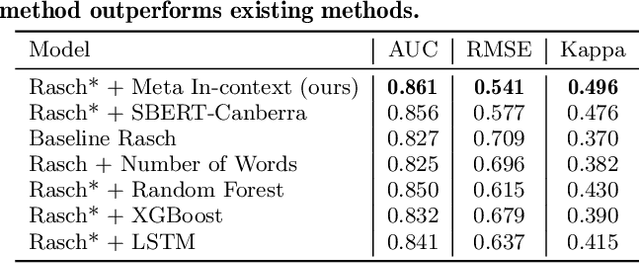Sami Baral
DrawEduMath: Evaluating Vision Language Models with Expert-Annotated Students' Hand-Drawn Math Images
Jan 24, 2025



Abstract:In real-world settings, vision language models (VLMs) should robustly handle naturalistic, noisy visual content as well as domain-specific language and concepts. For example, K-12 educators using digital learning platforms may need to examine and provide feedback across many images of students' math work. To assess the potential of VLMs to support educators in settings like this one, we introduce DrawEduMath, an English-language dataset of 2,030 images of students' handwritten responses to K-12 math problems. Teachers provided detailed annotations, including free-form descriptions of each image and 11,661 question-answer (QA) pairs. These annotations capture a wealth of pedagogical insights, ranging from students' problem-solving strategies to the composition of their drawings, diagrams, and writing. We evaluate VLMs on teachers' QA pairs, as well as 44,362 synthetic QA pairs derived from teachers' descriptions using language models (LMs). We show that even state-of-the-art VLMs leave much room for improvement on DrawEduMath questions. We also find that synthetic QAs, though imperfect, can yield similar model rankings as teacher-written QAs. We release DrawEduMath to support the evaluation of VLMs' abilities to reason mathematically over images gathered with educational contexts in mind.
Automatic Short Math Answer Grading via In-context Meta-learning
May 30, 2022



Abstract:Automatic short answer grading is an important research direction in the exploration of how to use artificial intelligence (AI)-based tools to improve education. Current state-of-the-art approaches use neural language models to create vectorized representations of students responses, followed by classifiers to predict the score. However, these approaches have several key limitations, including i) they use pre-trained language models that are not well-adapted to educational subject domains and/or student-generated text and ii) they almost always train one model per question, ignoring the linkage across a question and result in a significant model storage problem due to the size of advanced language models. In this paper, we study the problem of automatic short answer grading for students' responses to math questions and propose a novel framework for this task. First, we use MathBERT, a variant of the popular language model BERT adapted to mathematical content, as our base model and fine-tune it for the downstream task of student response grading. Second, we use an in-context learning approach that provides scoring examples as input to the language model to provide additional context information and promote generalization to previously unseen questions. We evaluate our framework on a real-world dataset of student responses to open-ended math questions and show that our framework (often significantly) outperforms existing approaches, especially for new questions that are not seen during training.
 Add to Chrome
Add to Chrome Add to Firefox
Add to Firefox Add to Edge
Add to Edge